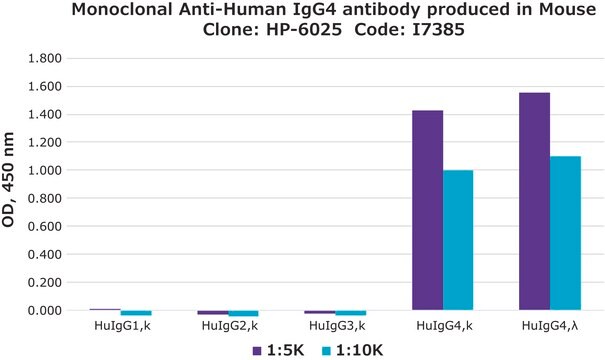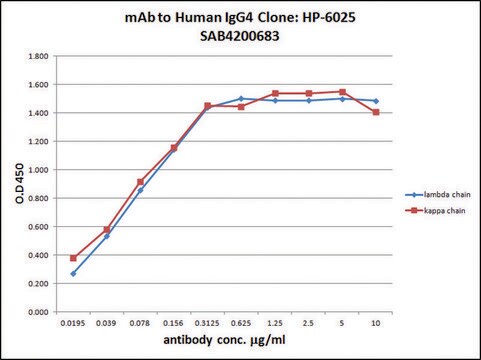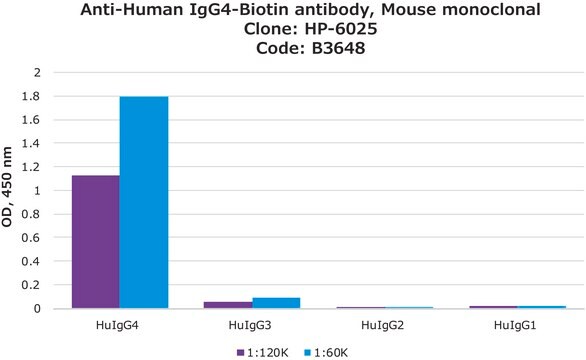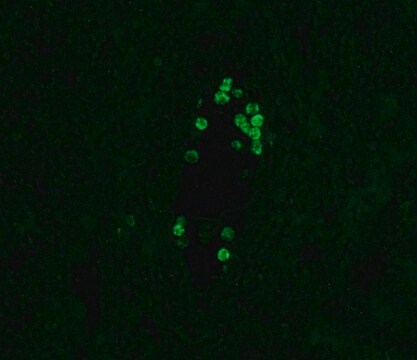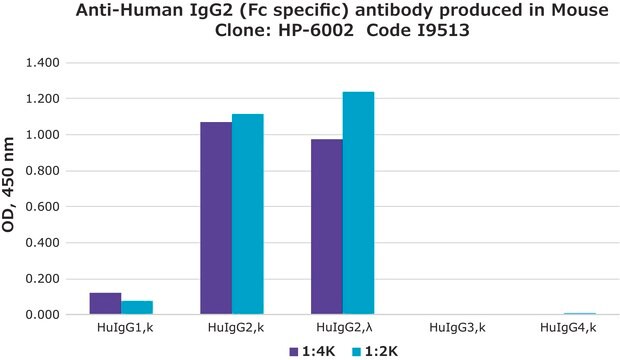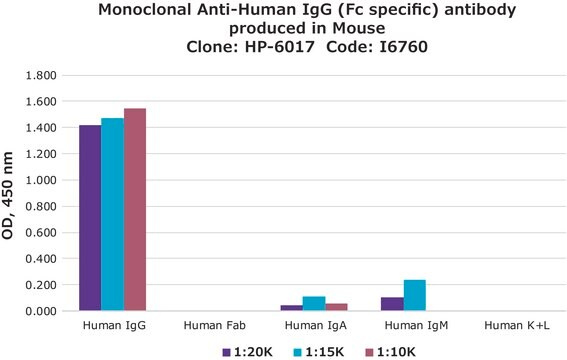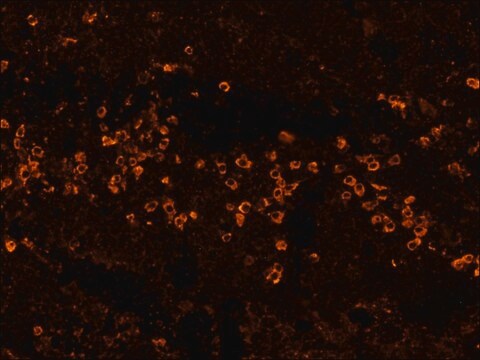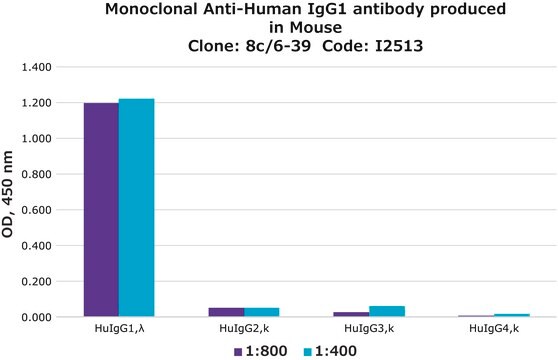I9888
Monoclonal Anti-Human IgG4 (pFc′ specific) antibody produced in mouse
clone HP-6023, ascites fluid
About This Item
Empfohlene Produkte
Biologische Quelle
mouse
Konjugat
unconjugated
Antikörperform
ascites fluid
Antikörper-Produkttyp
secondary antibodies
Klon
HP-6023, monoclonal
Enthält
15 mM sodium azide
Methode(n)
indirect ELISA: 1:2,000
Isotyp
IgG3
Versandbedingung
dry ice
Lagertemp.
−20°C
Posttranslationale Modifikation Target
unmodified
Allgemeine Beschreibung
Immunogen
Anwendung
Biochem./physiol. Wirkung
Haftungsausschluss
Sie haben nicht das passende Produkt gefunden?
Probieren Sie unser Produkt-Auswahlhilfe. aus.
Lagerklassenschlüssel
10 - Combustible liquids
WGK
nwg
Flammpunkt (°F)
Not applicable
Flammpunkt (°C)
Not applicable
Analysenzertifikate (COA)
Suchen Sie nach Analysenzertifikate (COA), indem Sie die Lot-/Chargennummer des Produkts eingeben. Lot- und Chargennummern sind auf dem Produktetikett hinter den Wörtern ‘Lot’ oder ‘Batch’ (Lot oder Charge) zu finden.
Besitzen Sie dieses Produkt bereits?
In der Dokumentenbibliothek finden Sie die Dokumentation zu den Produkten, die Sie kürzlich erworben haben.
Kunden haben sich ebenfalls angesehen
Artikel
Antibody-based serology tests are useful in identifying subjects with an adaptive immune response to the SARS-CoV-2 virus. Anti-human immunoglobulin antibodies allow for quick and simple, yet reliable assays with easy readouts and can also be adapted for high-throughput screening.
Unser Team von Wissenschaftlern verfügt über Erfahrung in allen Forschungsbereichen einschließlich Life Science, Materialwissenschaften, chemischer Synthese, Chromatographie, Analytik und vielen mehr..
Setzen Sie sich mit dem technischen Dienst in Verbindung.